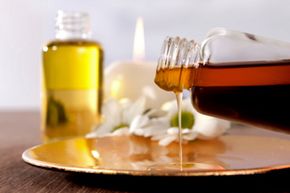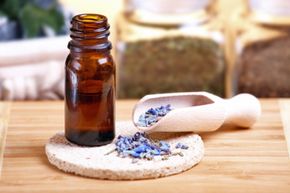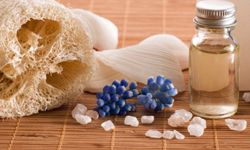Selecting the right fragrance oil, perfume or other scent variety can be tricky. You want a fragrance that reflects your style and one that isn't overpowering. It has to appeal to your significant other, too. You may also want one with aromatherapy benefits that will help you relax after a long, hectic afternoon or maintain your cheerful demeanor in stressful situations. If you have allergies or sensitive skin, it's also a good idea to choose a fragrance that's made organically, or with all-natural ingredients.
That's a lot to ask from a little dab of scent applied to your wrists (or your knees). Or is it? Fragrance is powerful. It can heighten mood, evoke long-buried memories and help add depth and resonance to new ones. Fragrance can also work a kind of culinary alchemy on food ingredients. It turns out we eat with our noses as well as our mouths. The judicious addition of a little aromatic cinnamon, vanilla or even licorice has the power to turn a ho-hum meal into an olfactory and gastronomic feast. Adding some of those food ingredient aromas to perfume can heighten physical attraction and interest. Remember that the next time he says you look good enough to eat.
Advertisement
The sense of smell is closely linked to areas of the brain that handle emotion and process new ideas. That makes smell a kind of sense-memory bellwether. If you smell carnations during your prom, 10 years later that spicy aroma will bestir memories of the dress, the dances and your first crush. If you were wearing jasmine when he fell in love with you, wear a little jasmine on your anniversary and he'll suddenly remember that spot behind your ear that's oh-so-sensitive.
Science is just beginning to understand the deep mysteries of smell, but that doesn't mean you have to wait to discover the perfect fragrance for your unique personality and lifestyle. On the next few pages, we'll look at the practical side of essential oils to discover the what and how of personalizing your scent. When you want that lingering fragrance on the evening air to remind him of the promise and magic of you, we've got the answers you need.
Advertisement



